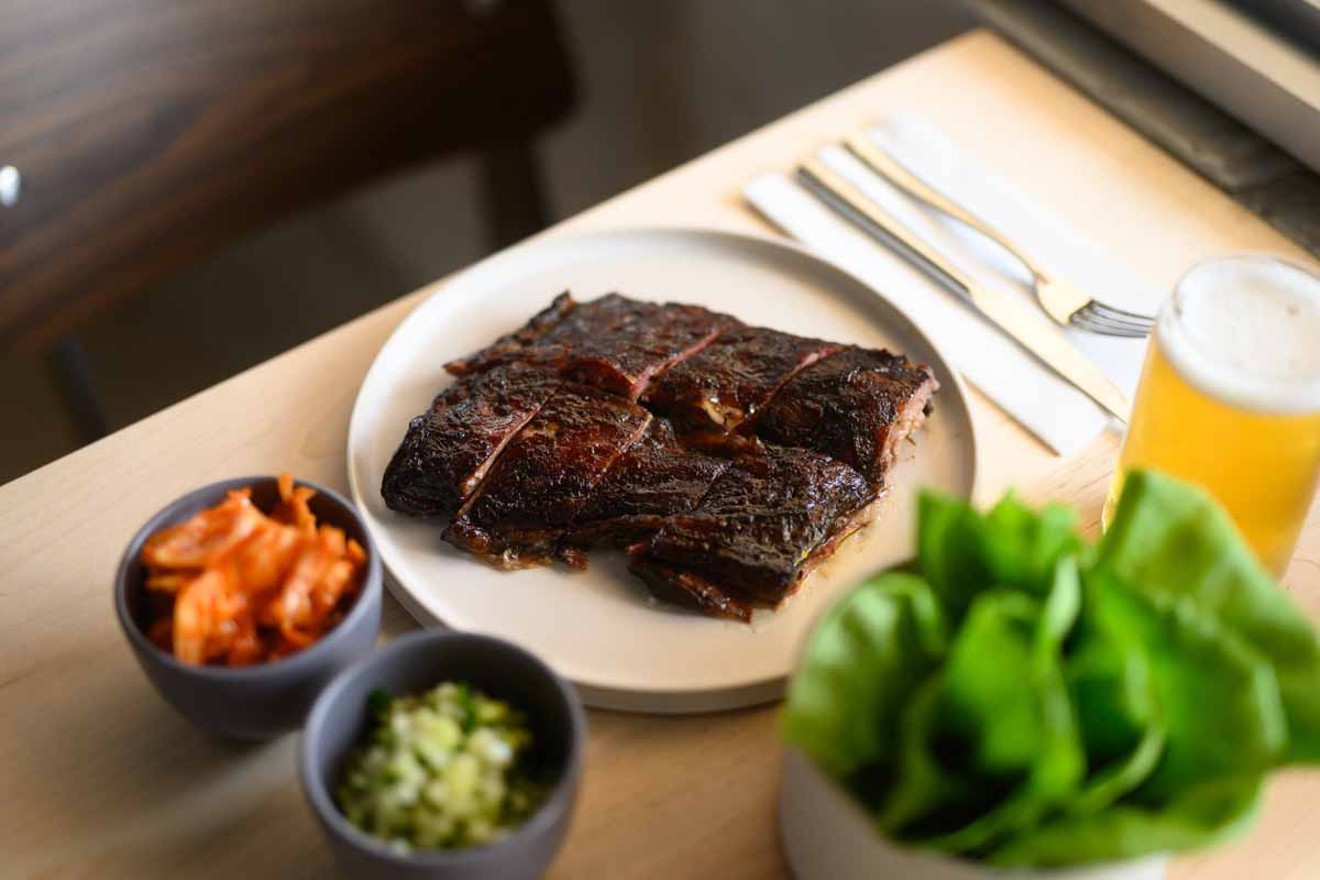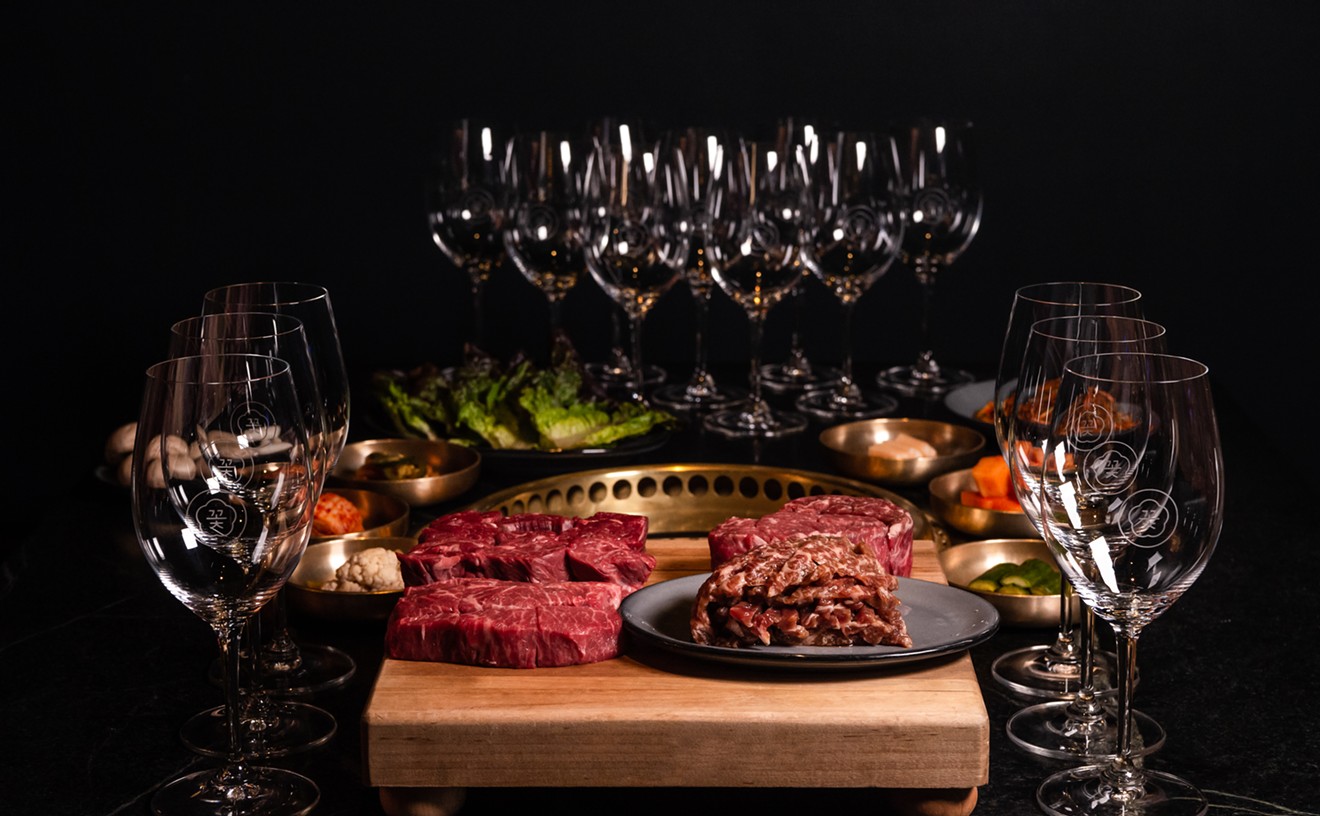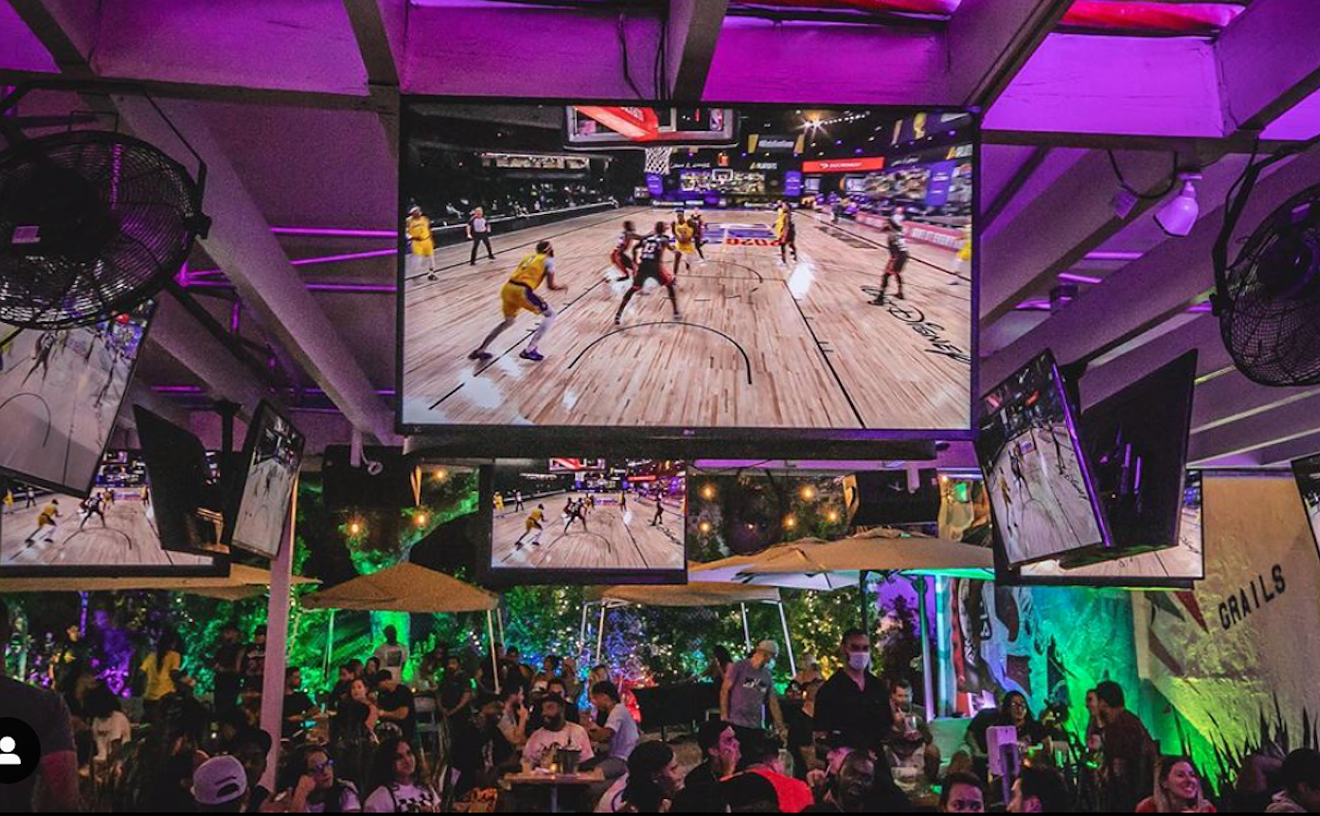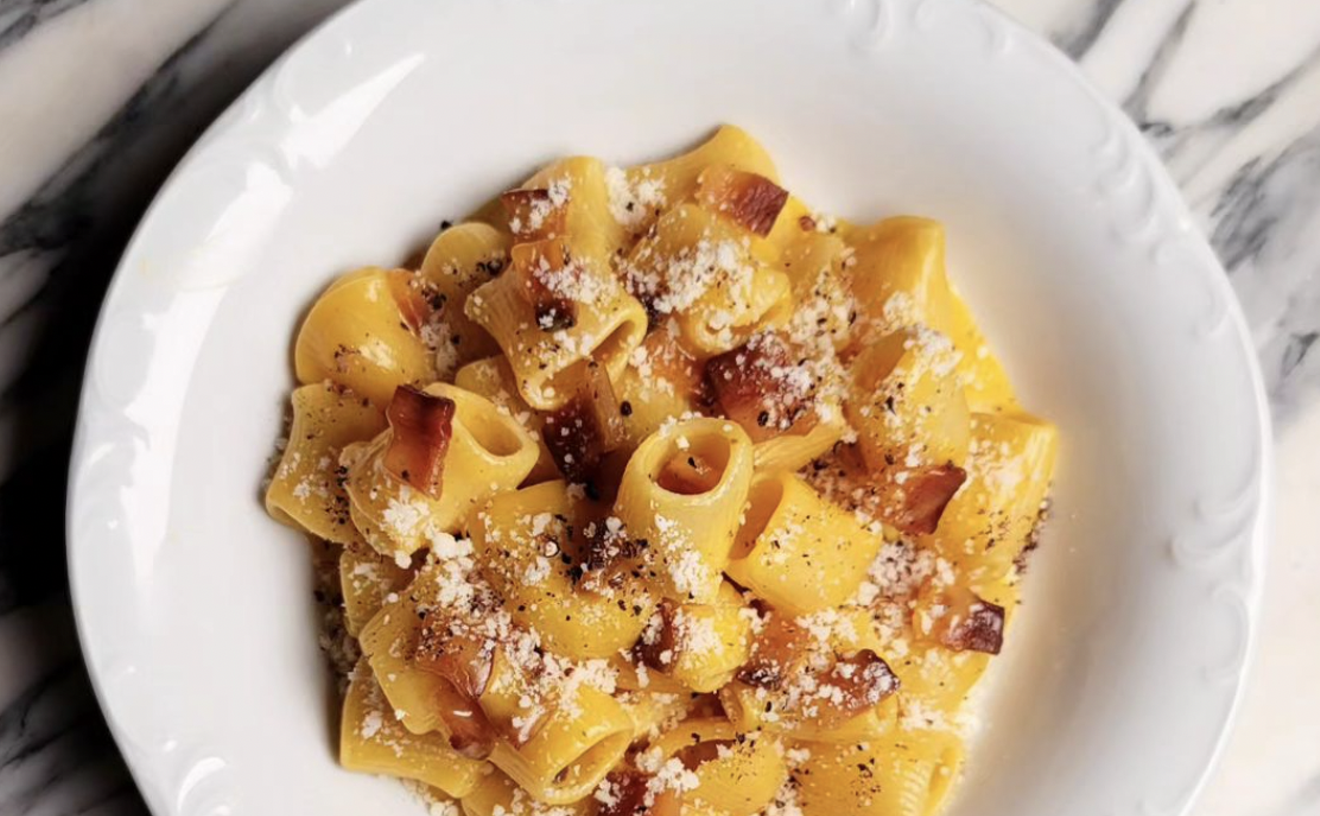It's emanating from the Citadel, where Richard Hales is test-smoking brisket, beef ribs, and pork ribs for his soon-to-open Society BBQ. Nearby in Little Haiti, Bon Gout BBQ is serving slow-smoked ribs and brisket crusted with the piquant Haitian spice blend epis. There's also a cloud forming over Allapattah, where late last month, the revered Brooklyn barbecue man Billy Durney quietly opened the Miami outpost of his famed Hometown Barbecue. On weekends in Coconut Grove, Phil Bryant and Veronica Valdivia dish out Maryland-style pit beef sandwiches alongside smoked short and long beef ribs as well as pork spare ribs.
The team behind Empanada Harry's, the café offering every variation of Latin America's empanadas, is planning to do the same in Kendall at the forthcoming Smoke & Dough near Karl Hayden's beloved four-year-old Hate Mondays Tavern.
Over the past year, Miami's barbecue scene, once dominated by a kind of glorified slow grilling that migrated south from Georgia, has undergone one of the city's trademark face-lifts. You can still cruise up and down NW 27th Avenue on a weekend and find a rib sandwich on thick white bread with a sticky-sweet mustard barbecue sauce, but now those who've gazed longingly at beef briskets gushing juices after 12 hours of smoke can get the real deal after a short drive.
Hales, who made his name with Sakaya Kitchen in the Shops at Midtown Miami when the retail center held little more than Target, was introduced to barbecue as a kid in Tampa.
"When I was growing up, my favorite restaurant in the world was the Mullett Inn, and it wasn't necessarily the food; it was the smell of the smoke," he says. The now-defunct icon specialized in smoking Gulf shrimp and mountains of mullet — the small, meaty fish often considered trash in other seaside parts of the country.

Hometown Barbecue's Durney said he immediately felt a connection to Allapattah upon visiting the neighborhood.
Photo by Daniel Krieger
On a recent weekday, Hales is sitting at the counter of his stall at the Citadel. He's poring over rolls of butcher paper scribbled with notes while faint plumes of smoke puff from the big stainless-steel smoker in the space once occupied by fryers and a flat-top. While running a two-brisket test — each crusted with a blend of salt, pepper, paprika, and garlic, onion, and tomato powders — he explains where things stand.
"The first thing I cooked in there were beef ribs. I pulled the first one out at 203 degrees and let it rest for an hour. The second one I left in for another hour; it was to 207 or 208 degrees when I pulled it out, and I let it rest for two hours, and you could tell the difference," he says. "It was incredible."
A couple of racks of ribs helped build his confidence, but the fickle brisket soon put him back in his place.
"It came out soft. It was beautiful. But in no time, it tightened up hard as this counter," he says while knocking on stone slab.
Since then, he's been playing with the smoker and various cuts of meat to figure out how best to trim and position the brisket, a notoriously difficult cut to smoke thanks to being almost two different cuts of meat (one gloriously fatty and the other lean) attached by a seam of muscle. He used biscuits to determine that the smoker is hottest in the back and at the top, where heat and smoke come in from the firebox before spinning down the front and bottom of the vessel.
While trying to master the ins and outs of the smoker and deciding whether to use hickory, mesquite, or Texas post oak in the firebox, he's also toying with dishes such as Sichuan oil burnt ends and a classic lineup of sides such as Texas potato salad and coleslaw.
"Am I a master at this like these guys from Texas? No. But like everything else I built in this city, I’m going to bust my ass to give you something really good," Hales declares.
Hard work is also the mantra of Hometown Barbecue founder Billy Durney, who constantly repeats, "Stay humble, stay focused, stay hungry." Only Durney has a larger-than-life reputation built on a foundation of training at Louie Mueller's before opening his honky-tonk barbecue joint in a pregentrified Red Hook.
For Durney in Miami, it was that first glimpse of a space in Allapattah attached to what is slated to become a live-work vertical playground with buildings designed by the Pritzker Prize-winning architect Bjarke Ingels.
"I rolled up to the place and was totally overwhelmed and blown away," says the heavily tattooed onetime bodyguard whose smokehouse sits atop New York City's meat scene. "While I was there, this train kept passing by, and I couldn't stop thinking about smoking barbecue. Right in front of these Latino markets, and all of the Caribbean spice, it just reminded me of Red Hook when we first opened."
Here you'll find all of the Texas signatures, such as butter-soft brisket ($14 per half-pound) with a deep-magenta smoke ring rippled with juicy fat. There are massive heavily marbled beef ribs ($30 per pound) alongside thick-cut bacon encrusted in a fiery jerk seasoning ($7 per slice) and a refreshing coleslaw and rich-as-hell mac 'n' cheese and jalapeño-studded corn pudding ($6 each). The house-made cheddar jalapeño sausage ($7 per link) is also worthy of attention thanks in no small part to the molten pockets of sharp cheese riddling each juicy link.
Widely recognized as one of the best purveyors of barbecue in the nation, Durney says making barbecue in Miami — specifically, tending a roaring fire of Texas post oak for 16 to 18 hours a day — required the approach of a New York City summer, and one that ultimately benefits the final product.
"It's also just like cooking in Texas," he says. "The humidity here causes moisture and steam, which is good for the cook."
Yet Durney isn't tethered to tradition, and the menu at Hometown includes a number of site-specific items, such as whole smoked lamb breast ($34), deboned and caramel-glazed to create a crisp exterior, that's served Korean bo ssam–style with kimchee, cured cucumbers, and Bibb lettuce. Fire-roasted wild mushrooms ($12) are dressed with cilantro and pepitas, while tender chicken hearts ($10) are painted with a sweet-sour tamarind sauce and rested in a swoosh of peppy cilantro chimichurri.

Hometown offers counter service during lunch, which includes tacos and lamb bánh mì sandwiches.
Photo by Daniel Krieger
Even the word "barbecue" has a more complex history than many know. It is likely an adaptation of a similar word used by indigenous tribes from which the Spanish made "barbacoa," which they and Haitians used to describe a framework of sticks set upon posts. Explorers of the Caribbean, from Columbus on, were constantly confronted by this method that indigenous tribes employed to cook and preserve mostly fish and wild birds. English explorer William Dampier's 1697 tome, A New Voyage Around the World, describes how indigenous homes abutted a "barbecue of sticks lying along about two foot distant from the ground."
Texas barbecue, particularly the style that Durney and others practice and is often held up as the benchmark for the barbecue world, is not even a century and a half old, according to some accounts. It started in the Texas hill country with German and Czech settlers who, desperate to save unused meat from rotting, smoked it as a form of preservation.
Miami is perhaps the perfect place for barbecue. It is a place where people come to start anew without any ties to the past. So while a barbecue man like Durney can smoke lamb breast, and startups like Bon Gout's Jean Lucel can perfect his craft, they can both do so in a place with fewer prejudices and expectations, unlike other parts of the country. Barbecue, after all, is as much art as it is science, and neither advances without a leap into the unknown.












